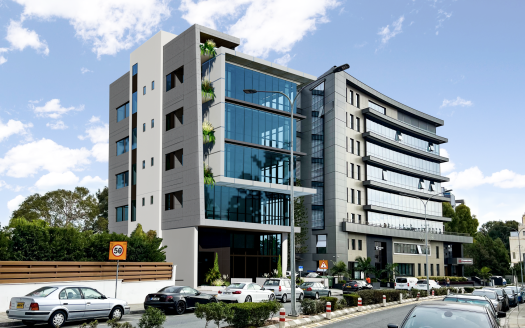2025 Property Investment Outlook: Which Cyprus City Has the Best Rental Yields?
Cyprus enters 2025 with a calmer property market than in the post-pandemic surge, yet rental demand remains lively. Investors scanning Cyprus properties now ask a simple question: which city delivers the most dependable gross yield without taking on unnecessary risk?
The market backdrop investors need
Official numbers show prices still edging upward. The Central Bank’s Residential Property Price Index for Q2 2025 confirms continued growth, driven chiefly by apartments rather than houses. That steadier rise matters because income return, not rapid capital gains, is likely to do more of the heavy lifting this year.
Independent tracking by RICS with KPMG points the same way. Apartment yields sit a touch above five per cent on a national basis and have moved only marginally over the past year, while houses continue to trail well below that. The pattern gives a reliable yardstick for city-by-city comparisons.
Tourism adds extra pull. The statistical service reports arrivals above 3.6 million for January–September 2025, with the UK still the largest source market. That backdrop supports both year-round and seasonal lets in coastal districts.
If you’re buying a property in Cyprus, those three threads (slower price growth, stable apartment yields, and robust visitor numbers) set the scene for city selection.
Limassol:
Limassol commands the island’s highest rents thanks to international firms, a strong services base and a deep pool of professional tenants. Market digests place average asking rents well above other cities, which keeps gross yields respectable even as purchase prices climb. For income-oriented buyers, the trade-off is clear: excellent tenant demand and liquidity versus compressed yields in prime locations.
Stock choice matters. Well-located two-bed apartments near the business district or the seafront let quickly, though entry prices mean the arithmetic won’t suit every investor browsing Cyprus properties for sale.
Nicosia:
The capital’s strength is reliability. Government, universities and a large services sector underpin demand, so voids tend to be shorter and cash flow smoother. Nicosia seldom tops the tables for headline yield, but it often wins on predictability—useful for buyers who prioritise consistent occupancy over peak-season spikes. Comparative datasets usually place Nicosia a shade below Limassol on gross yield but with less volatility through the year.
If your brief is “best place to buy property in Cyprus for steady income”, central Nicosia and areas near major hospitals or campuses warrant close attention.
Larnaca:
Larnaca has gathered momentum without losing price discipline. Airport access, a refreshed waterfront and ongoing urban upgrades have improved its pull with both residents and long-stay visitors.
The outcome is a blend that investors like: achievable purchase prices and healthy achievable rents, which together can push yields towards the upper band among the main cities. Several comparative reads through 2025 put Larnaca in the mix for top-tier income efficiency.
Check each property’s specs. Energy ratings and how easy it is to walk to shops or transport now help set the rent. Keep a close eye on running costs too—they link directly to the cost of buying property in Cyprus, because your net yield depends as much on fees and utilities as on the price you pay.
Paphos:
Paphos is a strong choice for hosts running short-term lets. Tourist arrivals were high in summer 2025, which helped push up occupancy and average daily rates. The catch is seasonality: demand often drops in winter unless you switch to mid-term stays aimed at remote workers or retirees. If you can make that switch, Paphos can still deliver strong income in the peak months.
Many overseas readers search for guidance on buying a property in Cyprus from UK. Legal processes are familiar, yet you should still line up local counsel early, confirm post-Brexit stay rules, and take tax advice on both sides before committing funds.
So, which city leads on rental yield in 2025?
No single dataset captures every micro-market, so triangulation helps. GlobalPropertyGuide’s 2025 update places average gross yields in Cyprus just above five per cent, with city snapshots historically showing Limassol slightly ahead of Nicosia and Paphos.
Value hunters often highlight Larnaca because of its balance of entry price and rent. Larnaca and Paphos most often offer the best straightforward percentages, Limassol offers depth and liquidity, and Nicosia offers steadier year-round occupancy.
Costs, compliance and sensible housekeeping
Headline gross yields can mislead if you skip the buying and running costs. Set a budget for transfer fees, legal fees, VAT on new builds, communal charges, insurance, and, if you run short-lets, platform and cleaning fees. The RICS/KPMG index shows yields changed only a touch year on year, so tightening costs often decides whether a buy-to-let works. This links directly to the cost of buying property in Cyprus and what you actually keep after expenses.
Prospective buyers browsing Cyprus properties will find that energy-efficient buildings in walkable locations rent faster and suffer fewer voids. Those weighing buying property in Cyprus should insist on a full cash-flow model—month by month—rather than relying on a single headline number.
How to act in 2025
Start with the rent roll you can realistically achieve through the calendar year, then stress-test interest rates and vacancy. If top-line gross yield is your main target, Larnaca and Paphos often have the edge this year. If you want market depth, corporate tenants and easier exits, Limassol stands out. If you value predictability above all, Nicosia is a sensible choice.
For readers comparing options on Cyprus properties for sale, that city-by-city filter will keep you focused. And if you’re planning next steps, a local agent with strong neighbourhood knowledge, such as the team at Chris Michael Property Group, can refine shortlists quickly and help pinpoint the best place to buy property in Cyprus for your risk profile.




